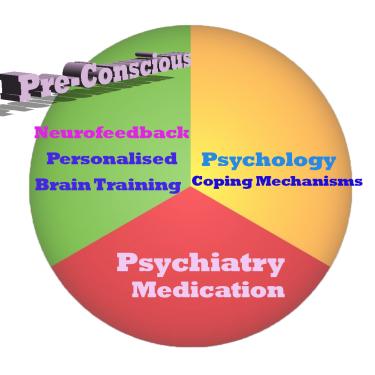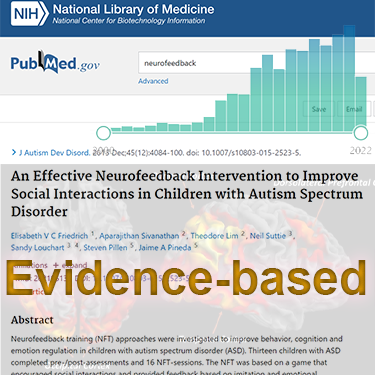Anger Management Issues

Lack of mood regulation, self awareness, and inhibitory control contribute to anger management and behavioural issues. These complicated behaviour patterns have a neural basis and vary by individual. With a Kaiser Neuromap we can detect vulnerabilities and train these with neurofeedback.
Excessive obstinacy, misunderstanding social cues and general overwhelm and anxiety are frequent characteristics of autistic children. With neurofeedback training, we have had success in remediating these symptoms.
Multiple brain areas contribute to impulsive aggression, self-fuelling rage, physiological arousal, ‘acting out’ and conversely calming down and rationally understanding one’s behaviour and even showing regret, remorse, understanding and insight, or not as the case may be.
A Kaiser Neuromap shows us possible vulnerabilities to such behaviour patterns, and can help us form a more nuanced understanding of a person’s preconscious drivers, that is, their ‘wiring’. There are multiple contributors which we can address:
– impulsive aggression, e.g. in response to being denied something
– rage, a continued unconsolable stage
– lack of empathy or understanding of others’ feelings
– inability to see different perspectives
– turn taking, self/other differentiation, shared authority
– monitoring and understanding consequences of actions
With neurofeedback training we can work on these preconscious processes, which occur before a person is able to apply conscious control or inhibition. The aim is to reduce or eliminate the person’s propensity to exhibit such adverse and undesirable behaviour in the first place, freeing up the mind to enjoy the moment in constructive synchrony with others.
Neurofeedback helps us stabilise the Default Mode Network, and reduce impulsive aggression and physiological arousal control. We have seen success within a few sessions in clients from 8-15 years of age.
Anger Management Issues often present with many other problems someone is experiencing in their life. With Personalised Brain Training, we can work on specific brain areas to help establish a healthy sense of self and emotional control. Sleep, Focus and a sense of purpose usually follow as a result, and we are able to structure our life in a way that it becomes a positive, energising feedback loop.
Issues commonly also experienced are:
– Sleep
– Mood regulation / Depression
– Violence
– Self-harm
– Loneliness and Anxiety
– Severe frustration
– Chronic Fatigue / Hyperactivity
With Personalised Brain Training, we can address these issues in a drug-free, non-invasive way.
Anger, rage, passive aggression and impulsiveness result from unregulated impulses originating in our ‘reptilian’ mind, the thalamus. Ideally, we would like our primal urges to be translated into group-minded, consensual behaviour. This way, we can achieve more than if we treat the world as a direct threat to our existence and an individual struggle for survival. Our cortex takes our instinctive urges and processes these; with healthy maturation, there is no need for uncontrolled outbursts.
Research shows there are cortical brain areas that determine our ability to inhibit our aggression. With a brain map, we can localise cortical areas in need of improved integration. We can then train these with neurofeedback.
The brain uses 20% of our overall energy and as such is an expensive organ to maintain – it has evolved, or was given to us, for a reason.
Neurofeedback can address anger management issues by targeting brain areas responsible for maintaining our sense of self. We can work on disrhythmia in regions responsible for impulsive aggression and rage, and strengthen our inhibitory complex. Training is calming and helps our Reticular Activating System self-regulate better.
Neurofeedback is a form of complementary therapy and should not be seen as a replacement for conventional medicine. qEEG brain map-based neurofeedback training takes a more holistic approach to brain functioning, rather than just focusing on medical symptoms. It is not intended as a form of diagnosis nor medical intervention nor medical advice per the disclaimer.
Brain Maps and Personalised Brain Training Explained
Personalised Brain Training with Neurofeedback
Neurofeedback lets us train dysrythmic brain areas. With sensors comfortably fitted to the brain areas we want to train, we detect brainwave patterns real-time while watching a movie. When these patterns are inefficient, the volume drops momentarily. This is the feedback we are giving our brain, short and instantaneously.
The brain area we are training recognises this – while our conscious mind is focussed on the movie – and adjusts its behaviour to restore the normal volume. With repetition, throughout a session, learning occurs.
Meanwhile our conscious mind is solely focussed on the movie; the training process is passive in this sense.
The drop in volume is subtle, so we continue to understand the flow of the movie. No current or electrical stimulation is fed to the brain; sensors simply read brainwaves and the feedback is purely audio-visual.

Neurofeedback trains our Pre-Conscious Mind
Rather than engaging the conscious mind, which slows us down, we are training preconscious processes.
This equips us with the ability to live in the moment and attain our potential (if we have to resort to conscious control, we are not living in the moment).
We take a holistic approach to healthy brain self-regulation, rather than categorisation or diagnosis.
Personalised Brain Training is an advanced qEEG brain map-based approach to neurofeedback training developed by the founders of the field. Taking Othmer Method / ILF training methods further, it employs Default Network Training protocols as developed by David Kaiser.

Neurofeedback is Evidence-based
Neurofeedback training is an evidence-based complementary therapy. Its efficacy was first demonstrated some 50 years ago, and with advances in technology, training protocols have become more efficient and the feedback method – watching movies – thoroughly enjoyable.
Neurofeedback is evidence-based. It’s first application was discovered in 1971 when it was used to resolve intractable epilepsy.
There are over 2,000 peer-reviewed research reports on PubMed demonstrating efficacy across a number of pathologies.
In the US, it is an accepted complementary treatment for many challenges.
Living in the moment is a fine balance between acting on impulse and imposing conscious constraints on our actions. We want to be free to live out our emotions, without having to think and double-think about everything we do. At the same time, our impulsive drives might not always be apposite. We might find ourselves often triggered by events or others’ actions. This might be compounded by a general anxiety and feeling of irritability. Once we embark on a course of action, we feel a sense of adversity by our environment. In response, we try to overcome this with more determination. In the course of what we perceive as goal-directed behavior, we might be perceived as unrelenting and overbearing. At this point, we become accused of having anger issues.
Neurofeedback can help bring us on an even keel and restore our internal balance. We reduce symptoms of anxiety and irritability through physical and emotional calming. Next, we restore prefrontal control, the lack of inhibition that makes us explode. Then, we can start to address the underlying cause – we call this trauma, or unprocessed emotional events in our past. Importantly, we do NOT need to rework this or bring them up into our conscious minds, unlike other psychological approaches. With Alpha-Theta training, we put the brain in a state where it can subconsciously process the past. It does this by delving into a deep state, theta, picking up an unharmonious element and taking this into the meditative alpha , where it is able to separate the emotion from the event and then store it without the triggering attachment.
Contact us for more information
